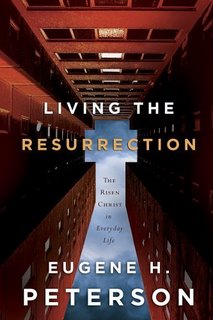Part 1: Jesus was an undeniable genius.
For example, in a culture of factious, often violent fanatical religion and under the oppressive military empire of Rome, Jesus gave instructions about how to spread his Father's relentless reign of love. His way was the very opposite of religious control, social revolt or escape, or ruthless empirial power and it seemed the odds were heavily against him and his followers.
Why have we drifted so far from Jesus' instructions? Why do we think we're smarter than Jesus? We can't even extend the reign of love in a culture of convenience, comfort and with relatively little opposition.
Jesus' extending-the-reign-of-love instructions are found in Matthew 10:1-11:1, Mark 6:6b-13, Luke 9:1-9 (the Twelve), Luke 10:1-24 (the Seventy-two). From these instructions we can discern some specific dynamics for spreading the Kingdom of God, his reign of world-transforming love.
The Authority of Compassion. Jesus imparts an "upside down" form of power. It is not power to control; it is power to extend life-changing compassion; an ability to directly confront that which threatens human life: demons and disease. The first question someone might ask these disciples is, "Does God really care for us? In this hell-hole of a society where religion is reduced to factious debate and Rome has its ugly foot on our necks, where is the God of our fathers, Abraham, Isaac and Jacob?" The answer: "Buck up, friend. The kingdom of God is near you."Why have we turned compassion into "Who has the better argument for reality?" Why has the faith been reduced to a placid mind game? Why do we have to trump every thought of the world with a Bible verse? Why has the love of God been mutated into just another power play?
Vibrant, relational community. Sending the 12 and the 72 out in pairs, Jesus did not say, "Set up a screen on a panel truck and a sound system and preach on the street corners." No, we, in our brilliance, came up with that tactic. No passing out tracts, no slick marketing plan. "Find a person of peace, stay with him/her and use that mustard-seed base to plant the spreading reign of love. Stay with that welcoming person. Nurture that relationship because it is a doorway into the village. Don't run around trying to find and win over the town big wigs and powerful 'influencers'."
Was Jesus smart, or what?
Two and one, two and the family of the one, two and the relatives of the family of the one, two and the neighbors of the family of the one.
Relational, receptive community where the "seed" of the word finds good soil: the existing relationships around "the worthy person" (Matt. 10:11). Covered with Galilean dust and hungry and thirsty from the mission, these two disciples and the welcoming "worthy person" become the residence of God extending Trinitarian, world-changing love. "Where two or three are together in my Name, bingo! You got it!" (Frye freelance paraphrase)
Particularly localized and strategic. This dynamic is a spin-off of the "search for some worthy person and stay at his house until you leave" (Matthew 10:11). Imagine these Jesus-followers doing as Jesus said. Doh! From town to town, village to village, house to house, they seek out the person of peace, the worthy person, [Greek axios]. Tell me Jesus did not understand contextuality and specificity. No mass media, no evangelistic blitzkrieg (gospel "lightning war"), no, thank God, televangelist with cotton-candy hair! Jesus' way: incarnate particularity! Just an ordinary, local person with relatives and friends in the town. This person accepts the "greeting" or "blessing" of the two. There's a built-in camaraderie, a oneness of spirit; a deep longing for the same thing. They find someone who is willing to affirm that Jesus of Nazareth is right and his ways are right, even though stunningly unlike anything else being peddled as "hope," as "a way out" in that culture. When"hope" spreads by the edge of a sword-blade or at gun point, it is, in the long run, a false hope.
To be continued....















